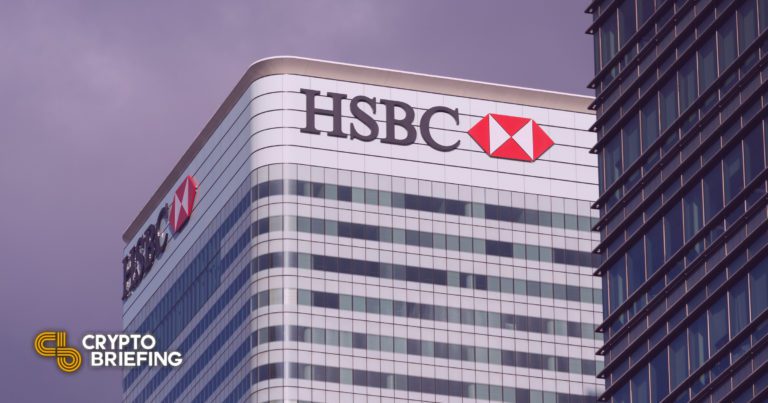
Key Takeaways
- Longtime crypto critic HSBC announced its foray into the Metaverse today.
- The British banking giant has bought virtual real estate in The Sandbox to create innovative brand experiences and engage with sports, esports, and gaming enthusiasts.
- The announcement comes weeks after JPMorgan opened a virtual lounge in Decentraland.
Share this article
HSBC, one of the world’s largest banks and financial services organizations, has bought a plot of virtual real estate in The Sandbox’s Metaverse to engage and connect with sports, esports, and gaming enthusiasts.
HSBC Enters the Metaverse
HSBC is expanding its presence to the virtual world.
In a Wednesday press release, the British banking giant announced that it had bought virtual real estate in The Sandbox, one of the crypto space’s leading Metaverse games, to connect and engage with a global audience of sports, esports, and gaming enthusiasts. HSBC Chief Marketing Officer Suresh Balaji said that the bank was making the move in a bid to create innovative brand experiences. “The Metaverse is how people will experience Web3, the next generation of the Internet,” he said. “Through our partnership with The Sandbox, we are making our foray into the Metaverse, allowing us to create innovative brand experiences for new and existing customers.”
While the British bank may be the first global financial institution to buy land in The Sandbox, it’s not the first major bank to make a pivot to embrace blockchain-based virtual worlds. Last month, JPMorgan opened a virtual lounge in Decentraland, another popular Metaverse game built on the Ethereum blockchain.
HSBC’s foray into the Metaverse may come as something of a surprise given the bank’s persistent hostility towards cryptocurrencies in the past. Last May, HSBC CEO Noel Quin told Reuters that the bank was “not into Bitcoin as an asset class” and had no plans to promote it to its customers through its wealth management business. In 2021, it refused to process cryptocurrency payments, obstructed customers from banking Bitcoin profits, and blocked clients from purchasing Microstrategy stock, the largest corporate holder of Bitcoin, labeling the asset a “virtual currency product.” Moreover, HSBC also blocked credit card payments to the largest cryptocurrency exchange in the world, Binance, citing “possible risks to customers.”
Disclosure: At the time of writing, the author of this piece owned ETH and several other cryptocurrencies.
Share this article
This article first appeared at Crypto Briefing